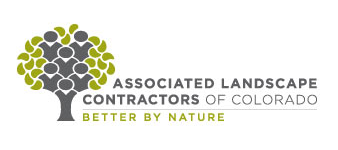| H-2B news: Omnibus Bill Update March 22 2018 |
 |
| News |
| Thursday, March 22, 2018 02:50 PM |
|
Please see the following update from the H-2B Workforce Coalition regarding H-2B cap relief in the omnibus spending bill. Additionally, view/download a statement from the coalition here. Yesterday afternoon, Congress finalized negotiating the Fiscal 2018 omnibus appropriations bill. The House is expected to vote on the measure today and Senate action will follow shortly thereafter. We will once again have succeeded in attaining language related to the H-2B program. Related to cap relief we believe the bill provides the Secretary of Homeland Security, in consultation with the Secretary of Labor, the authority to raise the H-2B cap when he determines that there is an economic need. It limits the total number of H-2B workers to that may enter the U.S. during fiscal 2018 to 129,547, the number of new and returning H-2B workers admitted to the U.S. in fiscal 2017. Once the bill becomes law, we must work with the Administration to encourage the Secretary of Homeland Security to implement this provision more quickly than last year and to consider authorizing a much larger number of visas than they did last year. The bill should contain the following language: SEC. 543. Notwithstanding the numerical limitation set forth in section 214(g)(1)(B) of the Immigration and Nationality Act (8 U.S.C. 1184(g)(1)(B)), the Secretary of Homeland Security, after consultation with the Secretary of Labor, and upon the determination that the needs of American businesses cannot be satisfied in fiscal year 2018 with United States workers who are willing, qualified, and able to perform temporary nonagricultural labor, may increase the total number of aliens who may receive a visa under section 101(a)(15)(H)(ii)(b) of such Act (8 U.S.C. 1101(a)(15)(H)(ii)(b)) in such fiscal year above such limitation by not more than the highest number of H–2B nonimmigrants who participated in the H–2B returning worker program in any fiscal year in which returning workers were exempt from such numerical limitation. The bill also continues provisions from fiscal 2017 that limit the ability of the Administration to enforce the corresponding employment and 3/4 guarantee provisions of the 2015 regulations, allow for the use of private wage surveys, provide for a 10-month season and allow staggered crossing for seafood workers. Prevailing Wage Provision Prohibition Against Enforcing Corresponding Employment and ¾ Guarantee Rule; and Defining Seasonal Need as Ten Months Provisions Staggered Crossing Provision SEC. 111. (a) FLEXIBILITY WITH RESPECT TO THE CROSSING OF H–2B NONIMMIGRANTS WORKING IN THE SEAFOOD INDUSTRY.— (1) IN GENERAL.—Subject to paragraph (2), if a petition for H–2B nonimmigrants filed by an employer in the seafood industry is granted, the employer may bring the nonimmigrants described in the petition into the United States at any time during the 120-day period beginning on the start date for which the employer is seeking the services of the nonimmigrants without filing another petition. (2) REQUIREMENTS FOR CROSSINGS AFTER 90TH DAY.—An employer in the seafood industry may not bring H–2B nonimmigrants into the United States after the date that is 90 days after the start date for which the employer is seeking the services of the nonimmigrants unless the employer— (A) completes a new assessment of the local labor market by— (B) offers the job to an equally or better qualified United States worker who— (3) EXEMPTION FROM RULES WITH RESPECT TO STAGGERING.—The Secretary of Labor shall not consider an employer in the seafood industry who brings H–2B nonimmigrants into the United States during the 120-day period specified in paragraph (1) to be staggering the date of need in violation of section 655.20(d) of title 20, Code of Federal Regulations, or any other applicable provision of law. (b) H–2B NONIMMIGRANTS DEFINED.—In this section, the term ‘‘H–2B nonimmigrants’’ means aliens admitted to the United States pursuant to section 101(a)(15)(H)(ii)(B) of the Immigration and Nationality Act (8 U.S.C. 1101(a)(15)(H)(ii)(B)) We will provide additional updates as the bill moves through the legislative process. Thanks to everyone for the tremendous outreach to lawmakers. Your voices were heard on Capitol Hill. The H-2B Workforce Coalition will encourage the Administration to swiftly implement this H-2B cap relief. We will also continue to encourage Congress to provide relief for fiscal year 2019 and to pass permanent H-2B cap relief. |



